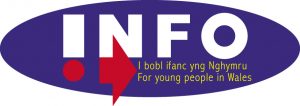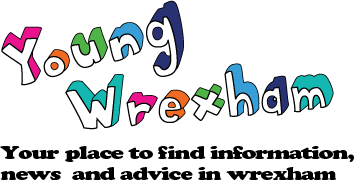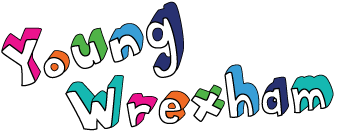LGBTQ+
This page was written by guest Editor, Adam Kaps, the young Cardiffian who founded Queerdiff. He has many years of experience working with young people in this area.
- Basic guide
- Helpful links & organisations
- Advanced guide
Adam’s note: This section is currently a work in progress and may be altered in future to reflect the work being done in this area and debates on this topic.
Basic guide
LGBTQ means Lesbian, Gay, Bisexual, Trans, Queer (you’ll find out more about these below). Many people use ‘LGBTQ+’ these days as the ‘+’ means the many other attractions and identities that exist (it just saves adding loads more letters onto LGBTQ!).
Below, you’ll find very up-to-date and detailed information about these names, as well as some useful links and organisations for support and more info.
Source: It’s Pronounced Metrosexual
Its Pronounced Metrosexual have some amazing resources call You Soup to help you understand diversity and identity and the Sexualitree to help you understand sexuality.
Helpful links & organisations
- stonewallcymru.org.uk
- Viva LGBT
- pridecymru.co.uk
- Liverpool Pride
- Chester Pride
- Manchester Pride
- asexuality.org (wiki on asexuality)
- Trans*Form Cymru (Youth trans* steering group)
- Bi Cymru – The All-Wales network for people attracted to more than one gender and people who think they may be bi)
- Rainbow Bridge (specialised LGBT domestic abuse service)
- Health and Wellness for LGBTQ+ people
Advanced guide
Attraction
Types
The Asexual Visibility and Education Network (AVEN) have explored through its membership a range of different types of ways that people are attracted to each other, beyond the most commonly known type which is sexually.
The main types they have identified are:
- Sexual: The desire to engage in sex with someone.
- Romantic: The desire to be romantically connected with someone (more articles to come on this).
- Sensual: The desire to engage in sensual activities with someone, this can range from things like cuddling, holding hands, giving or receiving massages, etc.
- Aesthetic: This is usually an emotional response to seeing something that you consider beautiful or visually appealing.
These attractions form together orientations that make up part of your identity and can be used to explain how you experience attraction to others. The identities do not need to all align with each other, though many people experience it that way, but it is perfectly normal and okay if you don’t.
Sexual Orientation
Sexual orientation is a way to explain your sexual attraction to others and it comes with a variety of different identities that explain that. Here are some of the common ones:
- Heterosexual/straight: The sexual attraction to people of the different sex.
- Homosexual/gay/lesbian: The sexual attraction to people of the same sex.
- Bisexual: The sexual attraction to people of two different sexes (more can be read about this under Sexual and Gender Identity).
- Asexual: The lack of sexual attraction to people.
Some less commonly but still valid orientations include:
- Androsexual: The attraction to men.
- Gynosexual: The attraction to women.
- Skoliosexual: The attraction to people who are non-binary (i.e. to someone who doesn’t define themselves as male or female, or a man or a woman – see Sexual and Gender Identity below).
- Demisexual: The attraction to people based on an emotional connection.
Romantic Orientation
Romantic orientations are like sexual orientations in that they explain how you experience romantic attraction to people. They use the same set of prefixes as sexual orientation, like hetero- and homo-, but use the suffix of romantic instead, such as:
- Heteroromantic: The romantic attraction to people of the different sex.
- Homoromantic: The romantic attraction to people of the same sex.
- Aromantic: The lack of romantic attraction to people.
Image credit here.
Sensual and Aesthetic Orientations
Like the other orientations, they use the prefixes mentioned above, but they use the -sensual suffix for sensual attractions and -aesthetic suffix for aesthetic attractions.
Sexual and Gender Identity
Sex
A person’s sex is a biological description of the person’s biology. Sex is made up of:
- Sexual organs, such as the penis and vagina
- Chromosomes, such as XY or XX
- Hormones, such as testosterone and estrogen
Medically, there are currently two officially-recognised sexes in the UK: male and female, however, there are currently debates over the inclusion to recognise a third sex known as intersex (an article will follow in the future to further explore this).
Gender and Gender Identity
Gender is defined by the American Psychological Association as “attitudes, feelings, and behaviors that a given culture associates with a person’s biological sex.” These are where we get the reference of what is masculine and feminine, although these change across cultures and history.
Gender identity is one’s own self-definition of gender and how that person experiences it. There are many different gender identities, but some of the most recognised are:
- Male
- Female
- Bi-Gender *http://itspronouncedmetrosexual.com/2013/01/a-comprehensive-list-of-lgbtq-term-definitions/
- Genderqueer *http://outandproudcardiff.co.uk/gender-queer/
Gender Expression
Gender Expression is the way a person, through interests, clothes, body language and many other forms of expression, chooses to present their gender identity, this is usually taken from societal concepts, such as “girls wear pink” and “guys wear blue”, but, as always, this changes over time, as it once was considered to be the other way around.
Common Trans* Terminology
Trans* is an umbrella term for used for many of the identities below:
- Assigned gender: This is the gender (typically male or female) that is given to a baby at birth, usually based on their perceived sex.
- Transgender: This is an adjective that describes the fact that the person self-defines as a gender identity that differs from the one assigned gender at birth.
- Transsexual: This is an adjective that describes the fact the person has physically changed their sexual status in some way (usually through hormones or surgically).
- Cisgender: A term to describe that a person’s gender identity matches that of the one they were assigned at birth.
- Cissexual: A term used to describe that the person’s sex has not changed from the one they were classified as at birth.

If you would like more information on this topic or you have questions please call into the INFO Shop or contact us on 01978 295600 / Instant message. If you leave us a message we will get back to you as soon as we can.
Funding Partners



